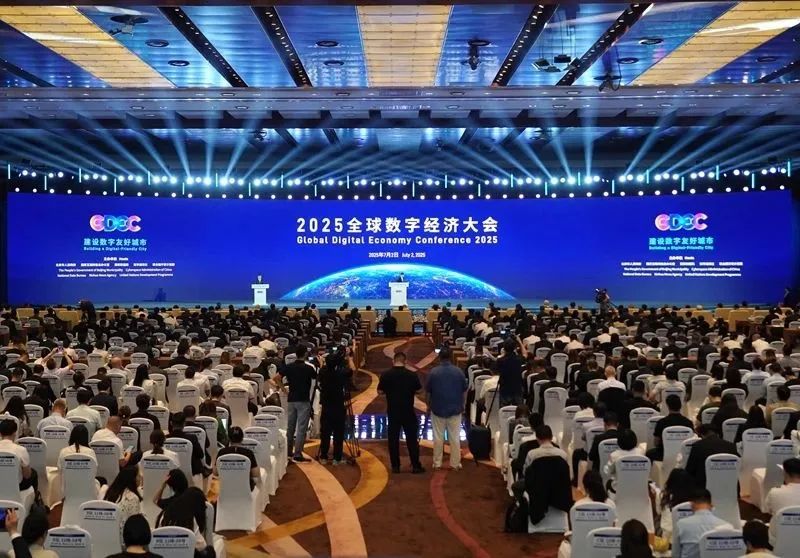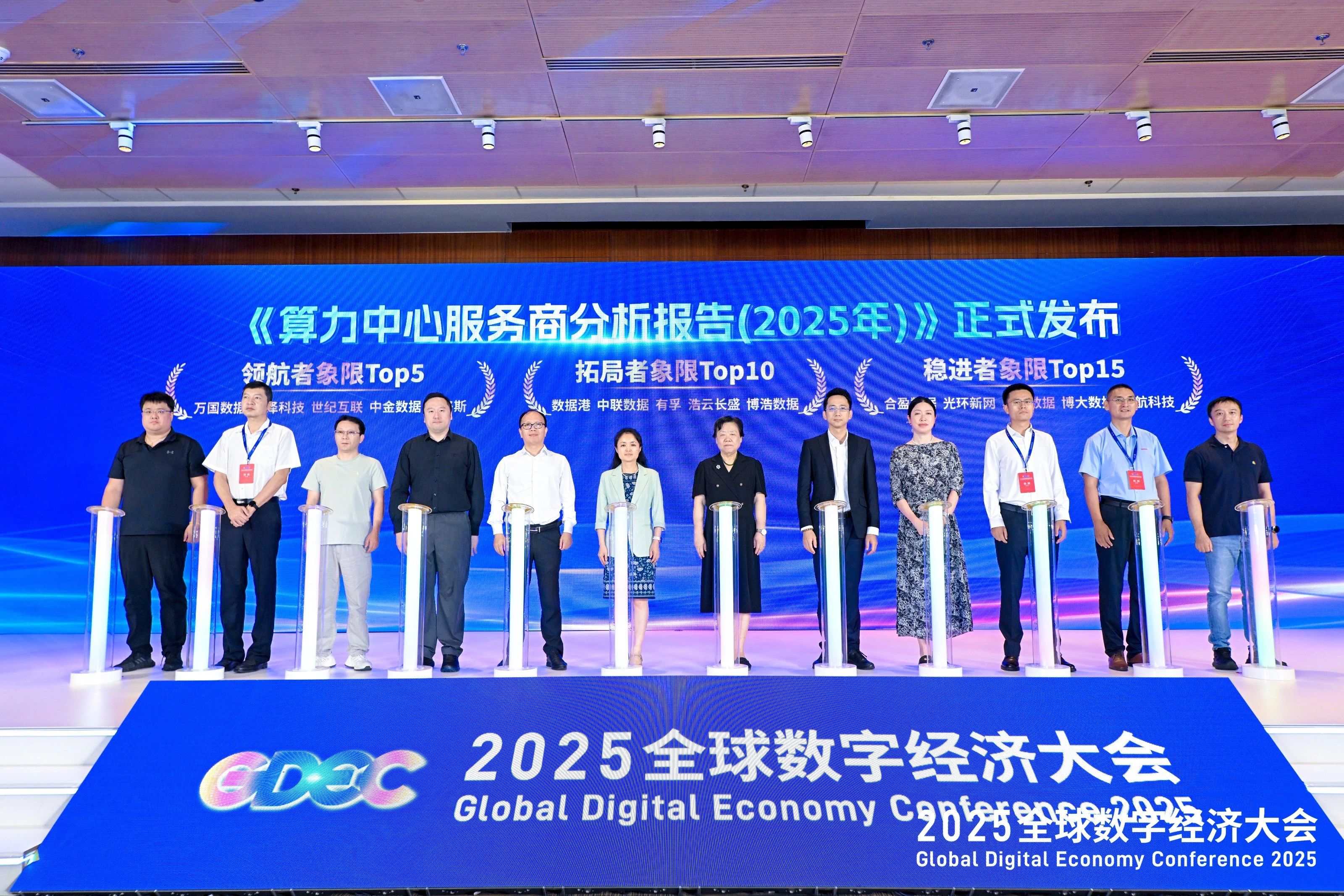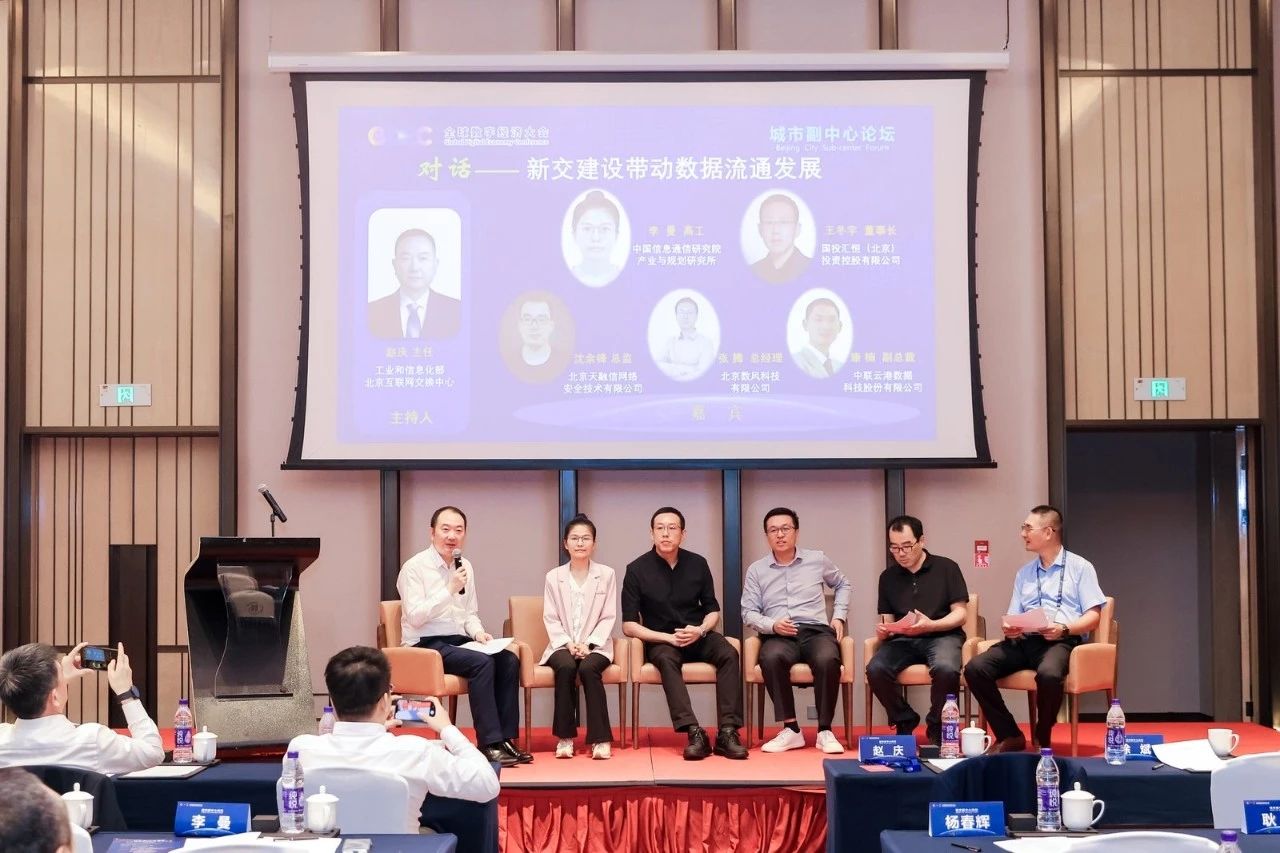2025 Global Digital Economy Conference | ZDATA Honored Among "Top 10 Computing Power Center Service Providers"
On July 2nd, the 2025 Global Digital Economy Conference opened in Beijing. Centered on the theme "Building a Digital-Friendly City," this conference attracted over 300 international guests from more than 50 countries and major international organizations. The "2025 Global Digital Economy Conference - Intelligent Computing Power Innovation and Development Forum," hosted by the Global Digital Economy Conference Organizing Committee, undertaken by the China Academy of Information and Communications Technology (CAICT) and the Beijing Municipal Bureau of Economy and Information Technology, and co-organized by the Open Data Center Committee (ODCC), was held simultaneously at the China National Convention Center on July 4th. During the forum, CAICT released the "Analysis Report on Computing Power Center Service Providers (2025)."

CAICT employed a three-dimensional evaluation model focusing on breadth of construction layout, height of technological innovation, and market operation capability. This model was broken down into 7 secondary sub-dimensions and 26 detailed indicators, assessed using an "efficiency-oriented" innovative logic. Among numerous outstanding enterprises, ZDATA Group distinguished itself with its first-mover advantage in industry chain capability integration and large-scale operation. By deepening its presence in vertical sectors and building differentiated technological barriers, while increasing investment in domestic under-construction data racks and actively expanding its international business footprint, ZDATA became a benchmark in its industry vertical. At the Intelligent Computing Power Innovation and Development Forum, ZDATA was honored to be selected among the "Top 10 Computing Power Center Service Providers for 2025."

On the afternoon of July 4th, ZDATA was also invited to attend the "New Digital Infrastructure Construction" thematic session held during the 2025 Global Digital Economy Conference's Sub-Center Forum. Kang Nan, Vice President of the company, participated in the dialogue session on "New Internet Exchange (IX) Construction Driving Data Circulation Development." He stated that amid the explosive growth trend in data scale and interaction demand in the capital, new Internet Exchange Centers will build trusted and secure data infrastructure. This will lower barriers to data factor circulation within the Beijing-Tianjin-Hebei region, enhance cross-network and cross-regional data interaction, improve computing power traffic management capabilities centered on Beijing for computing-network collaboration and training-inference collaboration, and achieve precise matching of supply and demand scheduling for computing power in the capital.

In recent years, ZDATA has been deeply involved in the construction of Beijing's intelligent computing center sector. Leveraging its strong technological capabilities and resource integration advantages, it has efficiently built computing power infrastructure, providing solid support for strengthening the capital's digital foundation and empowering the intelligent upgrade of industries across the board.
Recommended News
-
08/062024
Delegation of Zhongguancun Unicorn Enterprise Development Alliance Visited ZDATA
-
07/072025
2025 Global Digital Economy Conference | ZDATA Honored Among "Top 10 Computing Power Center Service Providers"
On July 2nd, the 2025 Global Digital Economy Conference opened in Beijing. Centered on the theme "Building a Digital-Friendly City," this conference attracted over 300 international guests from more than 50 countries and major international organizations. The "2025 Global Digital Economy Conference - Intelligent Computing Power Innovation and Development Forum," hosted by the Global Digital Economy Conference Organizing Committee, undertaken by the China Academy of Information and Communications Technology (CAICT) and the Beijing Municipal Bureau of Economy and Information Technology, and co-organized by the Open Data Center Committee (ODCC), was held simultaneously at the China National Convention Center on July 4th. During the forum, CAICT released the "Analysis Report on Computing Power Center Service Providers (2025)."

